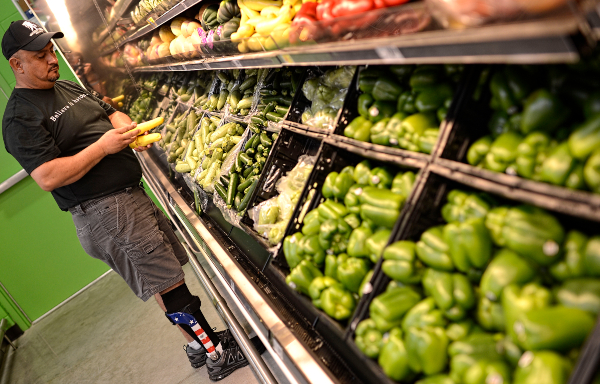3 Ways to Break the Stress-Eating Cycle

Navy veteran Rachelle Dygowski was fighting a losing battle with stress and weight gain.
She developed thyroid problems and was at risk for chronic diseases like diabetes and arthritis. Her full agenda as a volunteer legal representative for children, her community work, and her VA appointments left little time to focus on her health. She wasn’t sure what to tackle first until she enlisted the help of a Wounded Warrior Project® (WWP) wellness coach.
“My coach wasn’t just there for weight loss, but for my whole well-being,” Rachelle said. A key to her well-being was managing stress from everyday life and from living with PTSD.
Such a thing as stress eating?
For veterans and civilians alike, not-so-healthy eating is often related to stress. According to Cleveland Clinic, stress affects each person’s appetite differently: some of us get so stressed that we skip meals, while others overeat.
You may also be more likely to eat high-calorie foods during stressful times. So, how do we counter unhealthy habits when stress is stacking the cards against us? Here are three ways to balance the equation:
- Prioritize exercise. Exercise relieves stress and combats cortisol (the stress hormone responsible for fight or flight response). Find something you enjoy: nature walking, recreational sports, walking your dog. Build a virtual buddy system by using apps and online tools to share your physical activity.
- Practice mindfulness. Breathing techniques bring you to the here and now. Many veterans replay moments in their heads when dealing with PTSD, and this can happen to anyone living through stressful times. Don’t dwell in the past; don’t worry about the future. Live in the moment.
- Find social support. Reach out to others whether it’s in-person or virtually. Connecting can be challenging these days. Staying connected to a support network is key to managing stress. Find out how WWP can help get you connected.
The side benefits
Rachelle completed the wellness coaching, lost weight, and discovered other resources along the way: WWP Talk for one-on-one mental health care, Soldier Ride® for continued training and motivation, and Project Odyssey® for an in-depth experience facing her PTSD issues.
“I started out wanting to not let my coach down, and that turned into I didn’t want to let myself down,” Rachelle said. “Each time I spoke with her, I knew that she was doing this for me, and it was a motivating factor in my losing 17 pounds during the first three months. She gave me the tools for me to take care of me and keep me motivated.”
Maintaining a healthy weight can be challenging for many wounded warriors. Physical and mental injuries that limit physical activity are also likely to be contributing factors to weight gain. Just over half (52%) of injured veterans who responded to a WWP survey of the wounded warriors it serves are obese based on their body-mass index.
To meet these growing needs, WWP delivers on its promise to connect, serve, and empower warriors and their families. Learn more about WWP’s physical wellness programs here.
About Wounded Warrior Project
Since 2003, Wounded Warrior Project® (WWP) has been meeting the growing needs of warriors, their families, and caregivers — helping them achieve their highest ambition. Learn more.